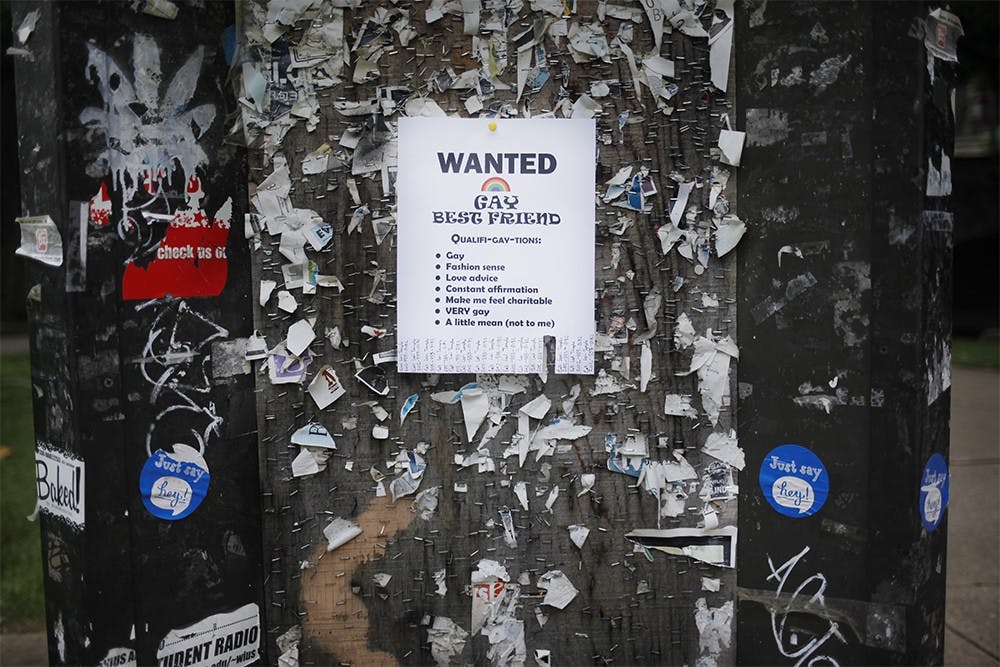As we get into the thick of our nation’s pride festival season, it is appropriate to talk about people who self-identify as allies of the LGBT community, i.e. people who immediately trigger my ?suspicions.
Listening to Tina Fey’s “Bossypants” audiobook while on the road, I found an analogy to help explain a common interaction I see when hetero and not-so-hetero lives collide.
Fey explains the way people bring up the scar on her face — if they do at all — says a lot about that person. The same occurs when another person strikes up a conversation about my sexuality.
A classmate and I had once done an assignment that involved interviewing each other based on a set of pre-determined questions. My interviewer asked me about my relationship with my parents.
Before I had a chance to answer, he asked, “Griffin, you’re gay, right?”
I wasn’t irritated by this question, more surprised since this was the second small class I’d shared with him. His follow-up: “So, how did your parents handle all of that?”
In the moment, I couldn’t figure out exactly what caught me off guard about that question. Later that day I finally pieced it together. I had virtually no intention to address how my non-traditional sexuality affects my relationship with my parents. It isn’t the case for everyone, but I don’t have much to say about it, and there are far more interesting and ?nuanced dynamics to ?discuss.
I can only speculate that my well-intentioned interviewer was interested in hearing his projection of my story, something dramatic and juicy, a narrative of a struggle that draws divisions ?between kin.
It made me wonder if I should work on getting used to people wanting to make their exchanges with me gay-flavored, if I am to act as their diversity tourism experience, someone to whom they can channel and show off how compassionate and open-minded they are. Or, as Fey put it regarding her scar, a chance to say, “May I be amazing at you?”
But I am not your walking Lifetime movie or profile picture from your ?mission trip to an impoverished nation.
And that gets at what really got to me about that encounter: My gayness may have been an exotic diversion from your straight life, but when it's over, you’re allowed to walk away from it.
You don’t have to wonder if those friend request from the popular girls from high school who would never speak to you have anything to do with word getting out that you’re for dudes. You don't have to wonder why the stranger at the H&M is asking for your opinion of the outfit she's trying on when you do not work at H&M. You don’t have to wonder if people letting you know they’re allies who don’t buy from Chick-fil-a is a sincere interaction or them making your sexuality about them.
And if you don’t believe that it’s superficial, look at how much allies fawn over the gay men and transwomen but shy away from ?the lesbian, bisexual, asexual and transmen members of the community.
I’m being gentle when I say “shy away.” They might as well be invisible to some so-called allies because they don’t have the same cultural capital. That’s why ‘gay best friend’ is a part of our vocabularies and ‘fluid sexuality friend’ isn’t.
Society went from hating gay people to really, really liking them, and we’re all still figuring out what not hating gay people looks like.
And don’t get me wrong. This is a lot better than outright discrimination and physical brutality. Hating someone for bad reasons is unacceptable, so we should also ask if we are liking someone for the wrong reasons.
gmleeds@indiana.edu




